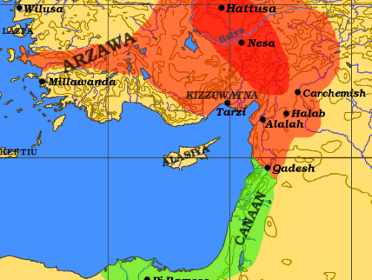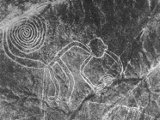Hittite Empire

Origin of the Hittites and Arrival to Asia Minor
The Hittites were ancient Indo-European people who settled in the Asia Minor about 1900 BC. They are believed to have originated from the southern Russian steppes. After their arrival to Asia Minor, Hittites most likely subjugated the indigenous population and established a powerful empire which became a rival to Ancient Egypt at the height of its power in the 14th and 13th century BC.
Establishment of the Hittite Empire and the Attack of Pharaoh Rameses II
The Hittite Empire was founded by Hattusili who subjugated other Hittite rulers and transferred the capital to Hattusa (near modern Bogazkale in Turkey) about 1600 BC. By the 13th century BC the Hittite Empire evolved into a major power, captured Syria and Mitanni in northern Mesopotamia and became a rival to the Ancient Egypt under Rameses II, one of the greatest and most powerful Egyptian pharaohs. Hittite king Muwattalli II managed to withstand the Egyptian campaign led by Rameses II who decided to conclude a peace treaty with the Hittites after the Battle of Kadesh in 1274 BC.
Destruction of the Hittite Empire by the Sea Peoples
At the end of the 13th century BC, the Hittite Empire fell into decline and was finally destroyed by the invasion of the Sea Peoples. Neo-Hittite kingdoms emerged in the mid-11th century BC but they never reached the power of the former Hittite Empire and were conquered by the Assyrians in the the late 8th century BC.
Hittite Art and Law
Hittite art works reveal a highly developed civilization but also indicate a considerable Babylonian and Assyrian influence. Very interesting are the Hittite law codes which were highly advanced in compare to other ancient legal codes. The Hittites did not know the principle “eye for an eye”, while death sentences were very rare.




